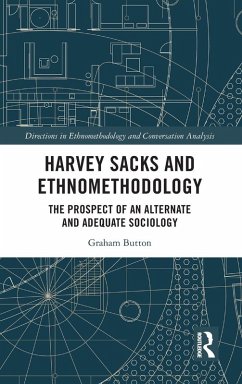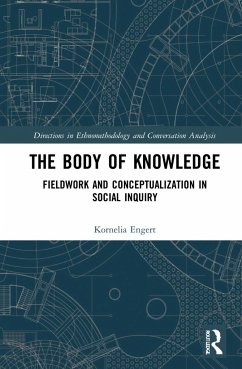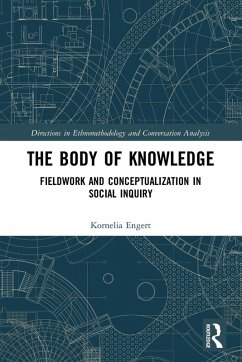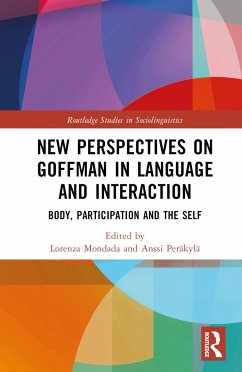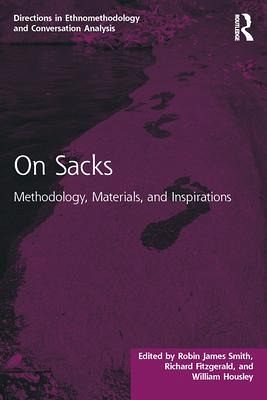
On Sacks
Methodology, Materials, and Inspirations
Herausgegeben: Smith, Robin James; Fitzgerald, Richard; Housley, William
Versandkostenfrei!
Versandfertig in 6-10 Tagen
45,99 €
inkl. MwSt.
Weitere Ausgaben:

PAYBACK Punkte
23 °P sammeln!
This book is devoted to the reintroduction of the remarkable approach to sociological inquiry developed by Harvey Sacks. Sacks's original analyses - concerned with the lived detail of action and language-in-interaction, discoverable in members' actual activities - demonstrated a means of doing sociology that had previously seemed impossible. In so doing, Sacks provided for highly technical, detailed, yet stunningly simple solutions to some of the most trenchant troubles for the social sciences relating to language, culture, meaning, knowledge, action, and social organisation. In this original ...
This book is devoted to the reintroduction of the remarkable approach to sociological inquiry developed by Harvey Sacks. Sacks's original analyses - concerned with the lived detail of action and language-in-interaction, discoverable in members' actual activities - demonstrated a means of doing sociology that had previously seemed impossible. In so doing, Sacks provided for highly technical, detailed, yet stunningly simple solutions to some of the most trenchant troubles for the social sciences relating to language, culture, meaning, knowledge, action, and social organisation. In this original collection, scholars working in a range of different fields, including sociology, human geography, communication and media studies, social psychology, and linguistics, outline the ways in which their work has been inspired, influenced, and shaped by Sacks's approach, as well as how their current research is taking Sacks's legacy forward in new directions. As such, the collection is intended to provide both an introduction to, and critical exploration of, the work of Harvey Sacks and its continued relevance for the analysis of contemporary society.






